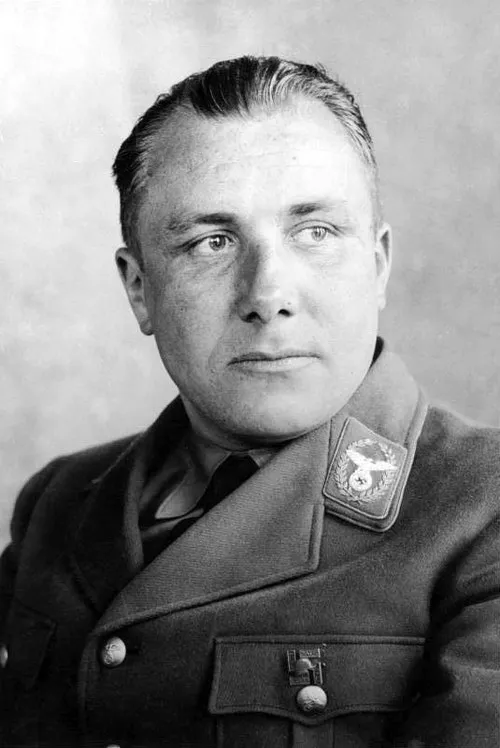
Full Name: John Edgar Hoover
Born: January 1, 1895
Died: May 2, 1972
Position: 1st Director of the Federal Bureau of Investigation (FBI)
Tenure: 1935 to 1972
Significance: Pioneered modern law enforcement and intelligence techniques
J. Edgar Hoover: The Man Behind the FBI
On May 10, 1895, in the bustling city of Washington D.C., a boy named John Edgar Hoover entered the world. Growing up in a modest household, young Edgar was influenced by his family's strong values and deep appreciation for discipline and order. His father, a government employee, instilled in him a sense of duty and ambition that would guide him throughout his life.
As he matured, Hoover exhibited an unwavering fascination with law enforcement. Perhaps it was during his teenage years when he would often read crime novels that his destiny began to unfold he dreamt of not just catching criminals but also shaping how crime-fighting was perceived in America. However, it wasn’t until he graduated from George Washington University with a law degree that he began carving out a path toward his illustrious career.
In 1917, just as World War I loomed large over the United States, Hoover joined the Justice Department as a clerk. Little did anyone know that this seemingly humble position was merely the starting point for an extraordinary career. By 1924 after only seven years Hoover ascended to lead what would become known as the Federal Bureau of Investigation (FBI). Ironically, while many saw him as merely an administrative figure at first glance, Hoover had already begun laying down blueprints for an agency that would redefine federal law enforcement.
The FBI under Hoover's command became synonymous with progressivism in policing techniques a move away from old-school detective work to scientific methods involving fingerprints and ballistics analysis. This shift wasn’t merely bureaucratic; it represented a seismic change in how American society viewed law enforcement agencies altogether. Indeed! It could be argued that this transformation helped build trust between ordinary citizens and their government a relationship fraught with tension prior to his leadership.
However! With great power came great scrutiny; some questioned whether such authority should reside within one individual for so long and they were right to do so! Throughout his tenure which lasted nearly five decades Hoover wielded remarkable influence over both the Bureau and national politics alike. His extensive knowledge about influential figures led many politicians to tread carefully around him; after all, who knew what secrets lay hidden within those confidential files? Despite this pervasive fear of exposure looming overhead like storm clouds on an otherwise sunny day...
The political landscape changed dramatically during Hoover’s reign at the FBI as various crises emerged from Prohibition's chaotic aftermath leading into rampant organized crime to Civil Rights movements calling attention to systemic injustices throughout America’s neighborhoods! These issues caught him off guard more than once but they also ignited passion within him: efforts towards cracking down on mobsters intensified when reports surfaced indicating growing links between these underground networks involved narcotics trafficking!
This fierce pursuit didn't come without controversy; amidst efforts aimed at dismantling criminal syndicates like Lucky Luciano's or Al Capone’s operations came allegations regarding unlawful surveillance tactics deployed against various citizens including activists fighting against racial inequality! Who knows... perhaps these melancholy moments reflect not only societal struggles but also inner conflicts stemming from personal ambitions too?
Soon enough though the mantle began shifting: public opinion soured further upon realization just how much information had been secretly collected under Hoover's watchful eye... This breach of trust manifested itself vividly through shocking revelations surrounding Martin Luther King Jr.'s activities or even JFK's alleged affairs all documented meticulously by agents eager either due diligence or simply protocol adherence!
This seemingly unchecked power ultimately culminated tragically on May 2nd 1972 when J. Edgar Hoover passed away leaving behind both accolades and criticisms intertwined intricately like vines on weathered stone walls... His legacy remains indelibly etched into American history books a reflection revealing complexities surrounding authority versus accountability every bit relevant today!
Fast forward more than fifty years later: even today as we observe ongoing discussions regarding police reforms or examine methods employed during investigations it becomes clear how past decisions reverberate through time creating modern-day dilemmas confronting contemporary leaders struggling against similar shadows cast long ago.
A Complex Legacy
The day marked not only someone's passing but also represented significant lessons learned about governance ethics & human nature entwined deeply inside structures designed ostensibly meant protect society rather than compromise its foundational principles!
- The Balance Between Security And Freedom: As debates rage on concerning privacy rights versus national security objectives globally it prompts questions surrounding necessary boundaries governing surveillance practices while safeguarding citizens’ freedoms without veering too far towards authoritarianism…
- Moral Ambiguities In Pursuit Of Justice: Just like every coin has two sides; examining motives behind governmental actions requires discernment recognizing complexity often overlooked amidst headlines screaming sensational truths echoing popular narratives...
- The Price Of Power: While revered initially for pioneering modern investigative methods ultimately succumbing pressures arising through unchecked authority inevitably serves cautionary tale reminding future leaders heed lessons learned lest history repeat itself
A Contemporary Reflection
If J.Edgar were alive today imagine what stories he'd tell witnessing developments transpiring across various social movements intertwining criminal justice reform advocacy propelled largely via digital platforms making activism resonate more profoundly amongst younger generations!
The Unfolding Narrative Continues...
Narratives shape societies we find ourselves wrestling still with ideas revolving around fairness justice who gets protected? What does integrity mean within institutions? These pressing inquiries remind us daily why vigilance matters keeping checks balances alive ensuring accountability flourishes lest our foundations crumble beneath weight imposed by secrecy ill-conceived ambitions masking ulterior motives hidden behind curtains placed securely out sight view.







